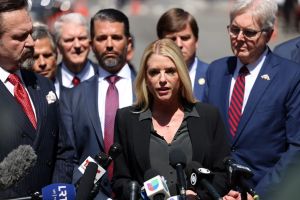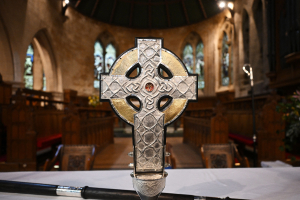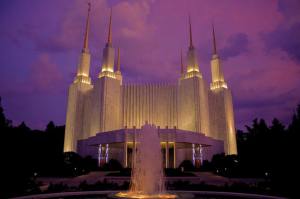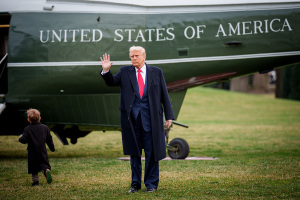7 reasons why prayer, not politics, will save our nation
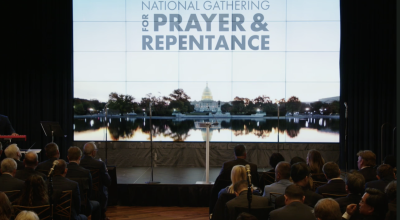
In recent years, a noticeable shift has occurred within some segments of the Evangelical church. Increasingly, believers have focused more on political engagement as the primary means of achieving national transformation. As a result, prayer — often symbolized by “the altar” — is sometimes dismissed or neglected.
Those who emphasize prayer over political activism are even mocked or deemed irrelevant in some circles. But is this focus on politics over prayer biblical? Is engaging in the civic arena truly more important than seeking God at the altar when it comes to moving the needle toward systemic change and biblical values?
In this article, the “altar” represents prayer, while “thrones” symbolize civic government. While there is certainly a place for political engagement in the life of the believer, the Bible makes it clear that spiritual transformation begins at the altar, not at the throne. By examining Scripture, we find that although leaders play an essential role in a nation’s fidelity to God, the true power for national change comes from a life devoted to prayer and obedience to God.
The books of Kings and Chronicles offer vivid illustrations of this truth. These books highlight a leader’s influence over a nation’s faithfulness to God, but they also show the importance of the altar. King David, for example, was victorious in battle not because of his military prowess but because he had a heart after God. Similarly, every king who followed David only succeeded when they remained faithful to Yahweh. So, while there is certainly a place for leadership and political influence, prayer and sacrificial obedience to Yahweh are more potent when it comes to national transformation.
Here are seven biblical reasons why altars are more powerful than thrones:
1. Our battle is not against flesh and blood
The apostle Paul makes it clear in Ephesians 6:10-13 that our struggle is not against human enemies but against spiritual forces in the heavenly realms that oppose God’s Kingdom. Political leaders and earthly systems are often the physical outworkings of deeper spiritual realities. Revelation 16 speaks of evil spirits influencing the kings of the earth, and Revelation 13 describes how the Dragon (Satan) uses political systems, like the Roman Empire, to oppose God’s purposes. This means that the Church’s primary battleground is in the spiritual realm. If we want to see lasting change in our nations, we must first win the battle through prayer before expecting results in the physical world. Without prayer, political engagement is like fighting a battle with no weapons.
2. Jesus said His Kingdom is not of this world
In John 18:36, Jesus declares His kingdom is “not of this world.” He does not mean that His kingdom is absent from this world but that its power and authority do not derive from earthly governments. Jesus did not rely on political structures to advance His kingdom, nor should we. The early church understood this truth. Despite facing intense persecution from the Roman government, they did not organize political revolts. Instead, they prayed, preached, and lived out the kingdom of God, trusting that God would move through them to transform lives and nations.
3. Prayer can shift the destiny of nations
In 1 Timothy 2:1-4, Paul urges believers to pray for kings and all those in authority so that we may live peaceful and quiet lives. This passage reveals the power of prayer to influence even the highest levels of government. Prayer can bring about peace, stop wars, and create conditions for spreading the Gospel. While political engagement has its place, prayer can shift the very destiny of a nation by bringing divine intervention into human affairs.
4. When the altar is rebuilt, the fire comes down
In 1 Kings 18, we read the dramatic story of Elijah’s confrontation with King Ahab and the prophets of Baal. Despite Ahab’s position of power, Elijah, a man of prayer, brought the nation back to God. Elijah’s first step was to rebuild the altar of the Lord, which had been neglected. When the altar was restored, God responded with fire from Heaven, demonstrating His power to the entire nation. This account shows us that God’s presence and power will follow when the altar is rebuilt in our lives and our nations. Political leaders may hold influence, but the true transformation begins when people return to prayer.
5. The power of Daniel’s prayer
Daniel 9-11 shows how Daniel’s persistent prayer and fasting moved heaven and earth. For 21 days, Daniel humbled himself before God, seeking understanding and interceding for his people. As a result, God dispatched angels to fight spiritual battles on Daniel’s behalf. Daniel’s prayer influenced the course of history, leading to the return of the Jewish people to their homeland. His story reminds us that real battles are fought and won in the spiritual realm, and prayer is the weapon that moves the hand of God in world affairs.
6. Jesus taught that prayer can bind and loose things on earth
In Matthew 18:18-20, Jesus taught His disciples that the prayer of agreement has the power to bind and loose things on earth as they are in heaven. This teaching highlights the spiritual authority given to believers when they pray in unity. Spiritual realities deeply influence the physical world, and through prayer, the church can impact what happens in both realms. If the church neglects prayer in favor of political engagement, it forfeits the divine authority that comes from binding and loosing in the name of Jesus.
7. The early church changed the world through prayer
As described in the book of Acts, the early church transformed the Roman Empire in just a few centuries. They did not rely on political power but on the power of the Holy Spirit, which was released through prayer. Time and time again, we see that prayer preceded every major move of God in the early church, as noted in the Acts narrative. From the day of Pentecost (Acts 2) to the missionary journeys of Paul, the early church understood that the key to Kingdom advancement was not political influence but prayer. Through prayer, they started a global movement that continues to this day.
In conclusion, is political engagement important? Absolutely. However, political activism should never be a priority over prayer meetings.
Dr. Joseph Mattera is renowned for addressing current events through the lens of Scripture by applying biblical truths and offering cogent defenses to today's postmodern culture. To order his bestselling books or to join the many thousands who subscribe to his acclaimed newsletter, go to www.josephmattera.org.
















